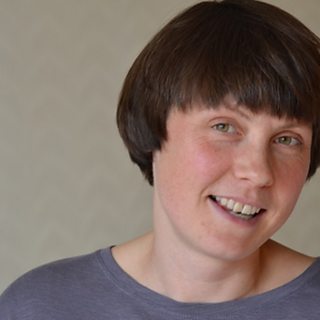In the second of our series focussing on scripted programmes produced in Scotland to mark , Radio Drama Producer Kirsty Williams introduces 'A History of Paper' by Oliver Emanuel and three lessons about Radio Drama.
What’s the point of paper?
To Speak
To Imagine
To Remember
, by Oliver Emanuel

Chapter 1: 2009
I’m a fledgling producer and is an up-and-coming theatre writer. He invites me to see a show – . We know each other to smile at, we’ve shuffled past each other in theatres, but we’ve never had a professional conversation. I go to the show. It rips me apart. And I know that his words are my kind of words. Olly says he wants to make radio but he needs a champion. He’s right. Every writer needs a champion.
It’s the producer who sells your work. They’re the conduit between your idea and the commissioning editor. And if they’re lukewarm about you or your idea, it’s tangible. If they’re passionate, it’s tantalising. So, lesson one: listen to radio drama. If you like what a particular producer does, it’s more likely they’ll like what you do. Find yourself a champion.
Chapter 2: 2015
I’m an ageing producer and Oliver Emanuel is an award-winning playwright. He calls me and says he wants to make a radio equivalent to Videotape. We know each other inside out, we bicker like siblings and – with many plays under our belt – we’re constantly having professional conversations. He’s smart; he knows Videotape ripped me apart, he knows it’s why we’re a team and he’s playing me (and it’s working).
He’s been running in the park. The Autumn leaves make him think of paper. How paper is disappearing from our lives. And then the image of paper floating from the Twin Towers on 9/11 comes. And a thought: paper survives whilst buildings and lives collapse. It triggers something both intimate and epic. He writes it up. A simple story – boy meets girl, boy falls in love with girl, boy loses girl. But with an unusual aspiration: to tell this story via the pieces of paper that shaped their lives. And to lead us (unexpectedly) to a moment in history that’s shaped all of our lives. 9/11. He wants to tell a story not directly about terrorism, but about the grief terrorism haunts us with – that most basic and feared of human emotions.
The combination of the story’s simplicity and its aspiration is radio gold. The is 45 minutes long. You don’t have a captive audience. You have to ask for their concentration. You don’t do that with convoluted plots. You do that with rhythms of speech that arrest the ears. But more importantly you do that with characters that make us want to listen to their story. So, lesson two: find a potent but simple story and make your characters the complex thing about your script.
Chapter 3: 2016
I’m an ageing producer that can’t stop crying and Oliver Emanuel is an award-winning playwright. We’re in studio. We’ve asked a real husband and wife (who are also really incredible actors – and ) to bring Olly’s words to life. We spend a day reliving young love and capturing its magic in sound. And we spend another day grieving for ourselves, for our losses and for everyone who has ever been affected by an act of hideous violence. It rips me apart (which still, after all these plays, surprises Olly. It’s not his aim. His aim is always to tell an interesting story in an interesting way.) But the process of making this piece of drama, like our passion for it, is tantalising.
Why did we put ourselves through it? For the same reason listeners stopped and listened when we asked them to. We devour drama because it allows us to explore emotions and experiences we fear, or desire, or find captivating. We devour drama because it teaches us about who we are. So, lesson three: the audience is you and me. Writing from the heart is an old cliché, but it’s bang on. We laugh when we identify, we cry when we empathise. We share stories because we are human. And tapping into what makes us human is, ultimately, our job.
